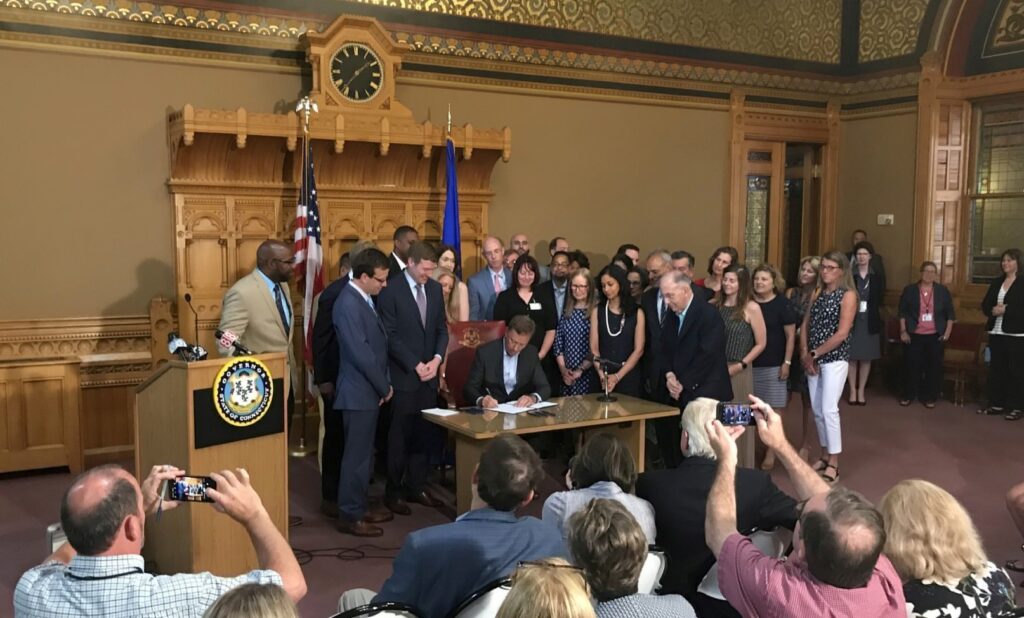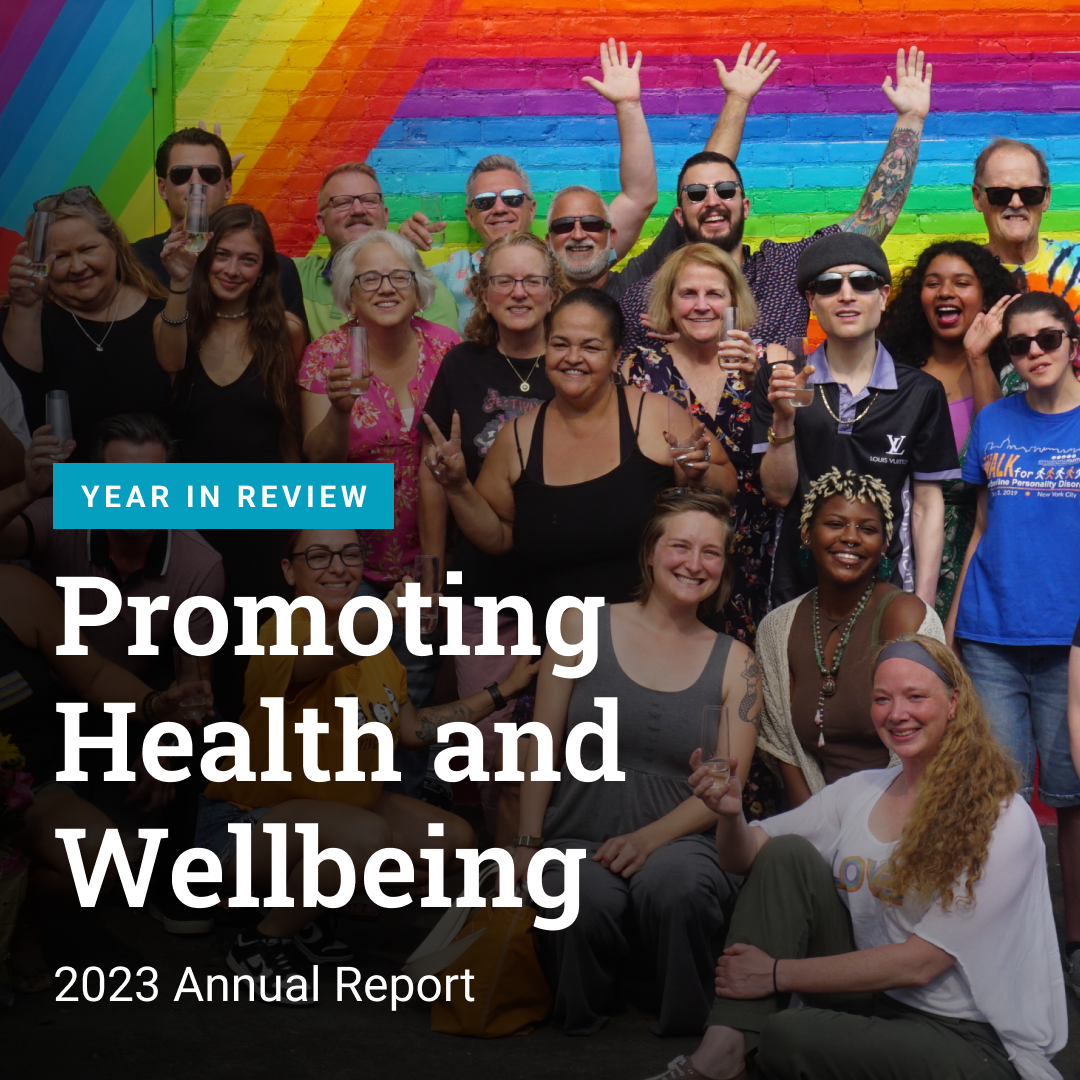2024 Legislative Priorities


MHC’s 2024 Legislative Priorities
2024 Legislative Session: February 7 – May 8
Public Policy Contact:
Mike Finley, Public Policy Coordinator
mfinley@mhconn.org 860.218.4056
Learn more about MHC and our Year in Review for 2023:

OUR VISION AND MISSION:
Mental Health Connecticut (MHC) envisions a future where wellbeing is rooted in respect for the condition of being human.
We get closer to realizing this future vision each day by partnering with individuals, families, and communities to create environments that support long-term health and wellness.
Mental Health Connecticut (MHC) was founded by Clifford W. Beers, the “grandfather of recovery,” in 1908. We began as an advocacy organization fighting for the fair treatment of all Connecticut residents. We believe everyone has the right to choose their path to wellness. Our approach to care is recovery-oriented, person-centered, and evidence-based.
MHC supports legislation that increases access to care, challenges stigma and discrimination, encourages preventative care, and elevates mental wellness to the same level of priority as physical wellness.
Connecticut residents are paying attention to their mental health and are seeking the commitment of the CT Legislature to commit to long-term policy initiatives. The CT Legislature has the opportunity to create a vision for the behavioral health system across the life span, and to fund areas that allow for:
PREVENTION AND INTERVENTION: When mental health and substance use conditions are addressed through prevention and intervention, especially for youth and young adults, it will allow Connecticut to:
- increase early detection, save lives, and improve long-term health outcomes

- lower health care costs
- remove barriers that cause stigma and discrimination
- apply whole health approaches, from nutrition to collaborative care
- invest in peer support, community health care workers, and other models that increase access
MHC is aligned with our national affiliate organization, Mental Health America (MHA), in the #B4Stage4 philosophy which advocates for mental health literacy and preventative measures.
EQUITY: It’s time to address health equity and make structural decisions based on the Social Determinants of Health. This requires Connecticut to work across systems, implement data-driven policy, identify where behavioral health outcomes intersect with oppression and racism, improve the quality of life for frontline workers, set up the human services sector for long-term success, and expand the delivery system in community-based care.
FINISHING WHAT WE STARTED: There is common ground understanding that all environments, from schools to workplaces to communities and homes, will improve if emotional and psychological safety mirror physical safety.
1.) “Upholding Equitable Healthcare Access: Enforce Mental Health and Substance Use Parity in Private Insurance”
- Urgent need for action on current health care access disparities
- Stronger enforcement of compliance with existing legislation
- Hold health carriers accountable for non-compliance
- Addressing the issue in 2024 ensures fair access to mental health and substance use services for everyone.
2.) “Empowering Recovery: Integration of Peer Support in Connecticut’s Mental Health Workforce”
- Peer support is evidence-based and crucial for comprehensive care
- Initiative focuses on integrating certified individuals with firsthand experience
- Inclusion in both clinical and non-clinical settings
- Prioritizing the initiative expedites individuals’ paths to recovery
3.) “Sustaining Mental Health Crisis Support: Securing Long-Term Funding for the 988 System”
- Advocate for Connecticut’s non-negotiable commitment to immediate mental health crisis support via the 988 system.
- Imperative to allocate sustainable, long-term funding for continuous and reliable aid.
- System staffed by trained individuals and certified peer support staff.
- Ensures a compassionate and understanding approach in crisis response.
4.) “Innovative Healthcare Access: Institutionalizing Telehealth in Healthcare Services”
- Telehealth is essential, especially for rural areas, the elderly, and those with disabilities or in-home care needs
- Shift from convenience to necessity
- Modernizing healthcare delivery requires making telehealth a permanent and vital aspect of the system
5.) “Empathy in Action: Supportive Housing for Mental Health and Substance Use Conditions”
- Supportive Housing First policies expedite permanent housing for mental health and substance use challenges
- Approach integrates treatment with a secure safety net
- Access to safe and affordable housing without mandatory treatment, unless meeting civil commitment criteria
- Empowers individuals to seek help on their terms, securing fundamental right to safe housing
6.) “Championing Mental Wellness: Fueling the Bipartisan Mental Health Caucus with Active Engagement”
- Pledge to actively empower the Bipartisan Mental Health Caucus in Connecticut General Assembly
- Position as a dynamic and informed resource for mental health initiatives
- Contribute firsthand to the collective effort in prioritizing mental well-being
- Transform commitment into tangible action for the state’s mental health landscape
7.) “Championing the collaboration with ‘For All Ages’ to tackle the pressing epidemic of loneliness and social isolation in the United States.”
- Address the annual toll of 162,000 Americans succumbing to isolation
- Seeks to safeguard community well-being and vitality
- Forging partnerships transcending age barriers
- Aims to create a nation where no one feels alone, uniting against the silent epidemic claiming lives


